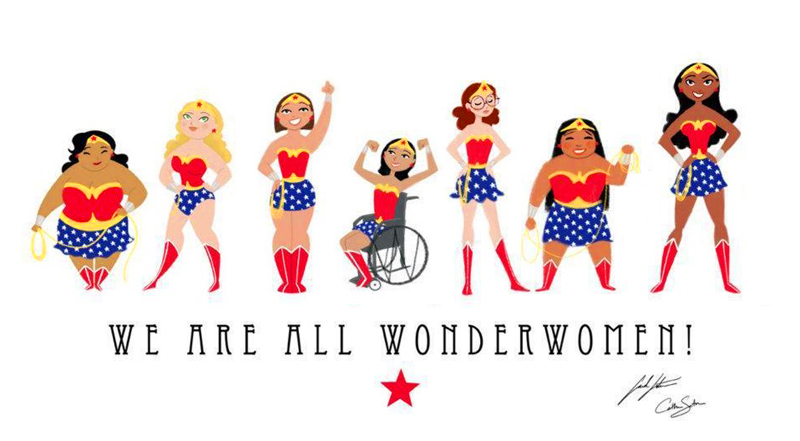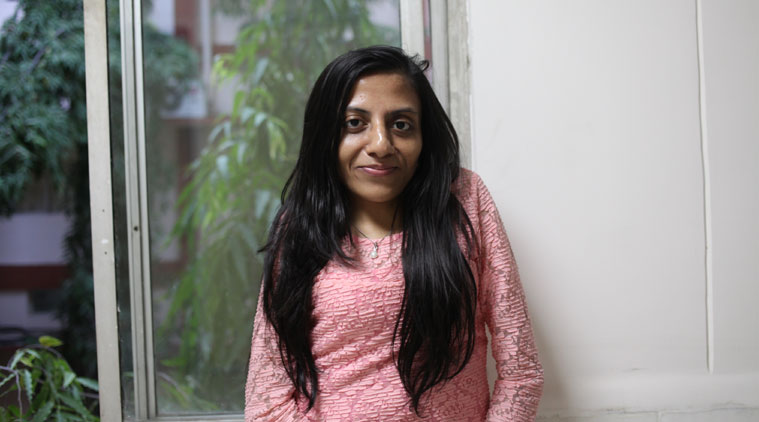This year’s UPSC Preliminary Civil Services Examination is topped by four women. This news serves to remind everyone that women have the full potential to achieve everything men do. In fact, it shows that women should no longer proclaim ‘we can do it’, but rather ‘we are doing it’. Women are out there doing all kinds of super-bad-ass stuff, from breaking the glass ceiling to topping examinations, and stories of heroines come out every day.


The story of the woman who ranked first this year in the UPSC, Ira Singhal, is on such story. Suffering from scoliosis, she is a woman who is to be considered as ‘differently abled’. In her case it is legitimate to say that she topped civils not only #DespiteBeingAWoman but also “despite being differently abled”. This might sound a bit patronizing, but her story makes it clear why we need to add the latter.
Ira Singhal ranked 815th place in the UPSC results of 2010, which got her allotted the Indian Revenue Service. She was however blocked from joining because of her “inability to push, pull and lift’’. Now I think we can agree Indian bureaucrats rarely need to “lift” anything. Therefore we should read this event firstly as blatant discrimination, and secondly as a sign of the inability of Indian State to be inclusive of people who are differently abled. She turned to the Central Administrative Tribunal (CAT) which initiated her as Assistant Commissioner in the Customs and Central Excise Service. In the meantime she prepared for the examinations again and now she has come out as first. Looking back at the events of 2010, she shared “It was tough but now everyone realised that I am capable of working in spite of the disabilities. They realised I am no pushover.”


Ira’s story puts the spotlight on a very particular kind of social marginalization; being a woman AND differently abled. The fact is that people with disabilities are not a uniform social group. Differently abled women need different policies and services for their social uplifting. Small things, such as providing garbage bins for sanitary napkins in toilets, reserved for differently abled people, can make a big difference. Similarly, there need to be different employment programmes for women with disabilities, so as to take their different needs into account; for example, maternal policies need to be differentiated for such women. Most importantly, it needs to be recognized that woman and girls with disabilities are more vulnerable for abuse and violence than other women.
The State has so far not been able to properly address this. In the 2011 draft of the Rights of Persons with Disabilities Bill, there was originally a section on women and girls with disabilities. Unfortunately this section had been removed and is absent from the 2014 version of the Bill. Women and girls are mentioned in the Bill, but not as a social group with specific needs.
These inadequacies can be explained by the fact that in India, the concept of policies for differently able is still very new. The Indian State has in general long neglected disability issues, let alone those of differently abled women. For example, the Ministry of Urban Planning, rarely cites the differential needs of people in its policy plans. The Department of Disability Affairs under the Ministry of Social Justice and Empowerment is just three years old, and still developing its approach to disability. It is therefore the right time for activists and civil society to push the government to adopt a gender sensitive approach to disability. Similarly it is time for feminists to realize that in order for our feminism to make a difference, we need to make it inclusive of experiences of those with disabilities.
Ira Singhal’s story should serve as not only an inspiration, but it should be the beginning of a commitment on the part of the Indian state to be inclusive of women with disabilities. We at CSR salute Ira, and remain committed to our efforts to improve the status of all women, across the nation.
Looking forward to reading your blogs, you can mail us your entries at WriteWithUs@csrindia.org, or upload them at Write With Us.
Donation for Centre for Social Research to Join our effort in rehabilitating Domestic Violence
Discuss this article on Facebook




